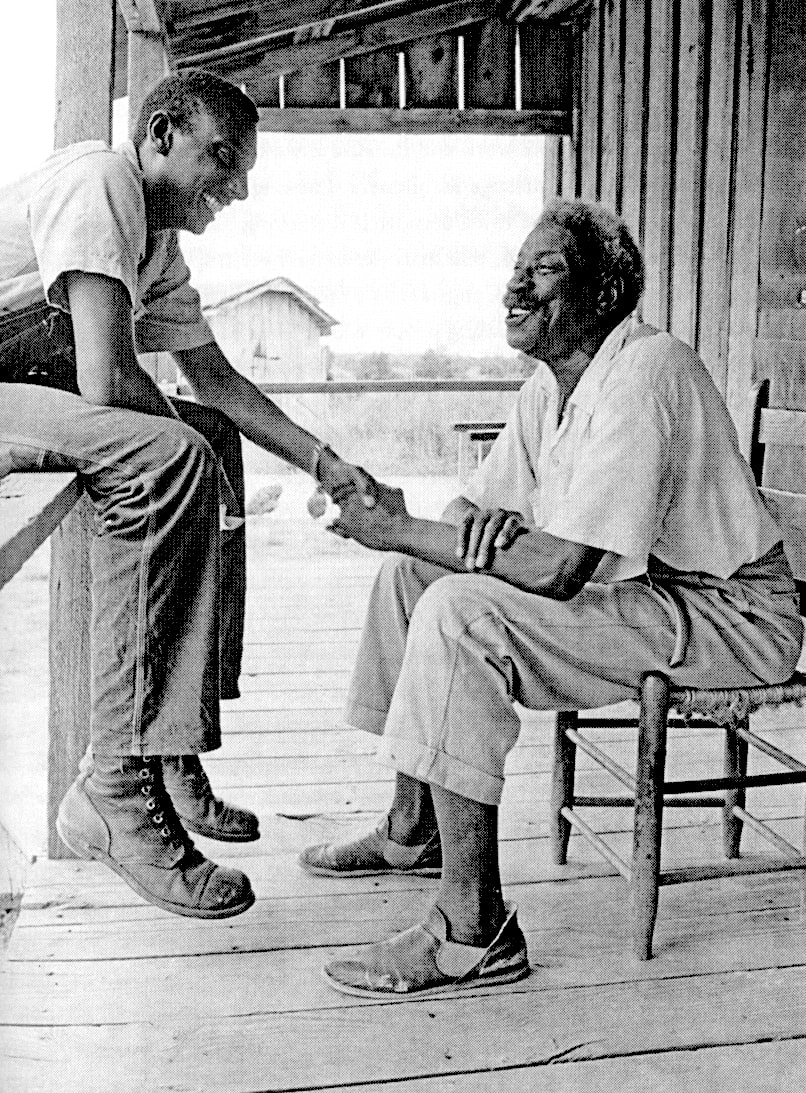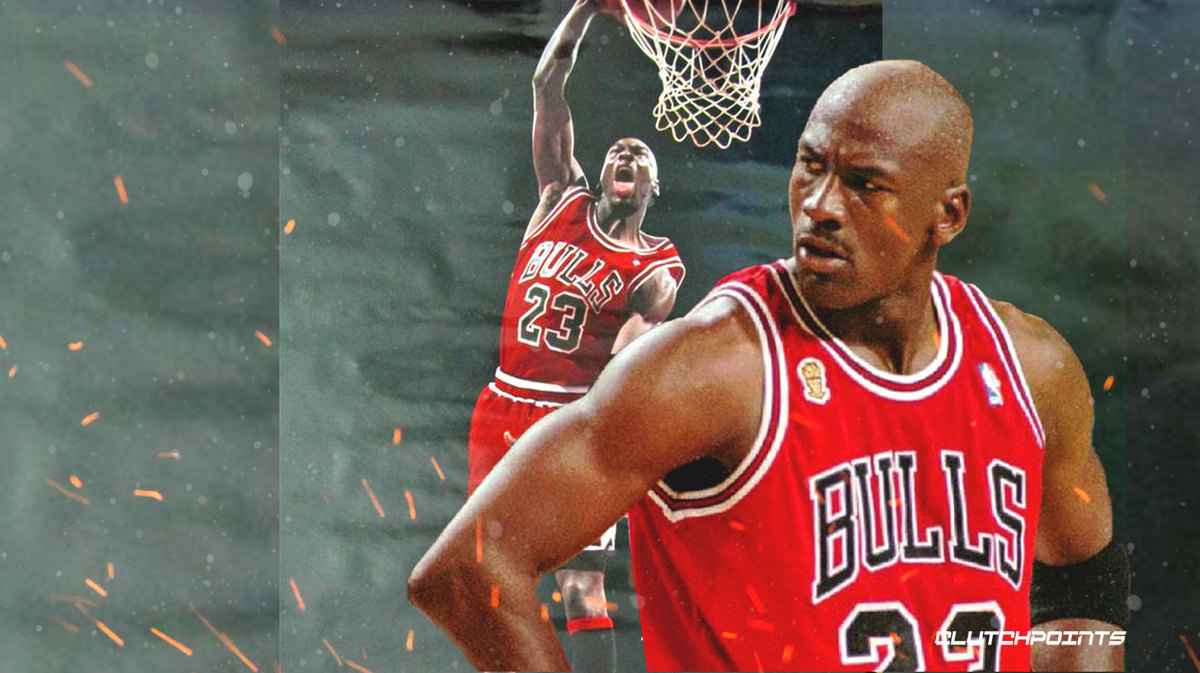For many people, Michael Jordan represents for them the very best basketball player of all time. And, the pull of this series is its focus on him as the focal point not only for the Bulls basketball team, but for basketball, sports, and popular culture during that era. Even today, most people throughout out the world pretty much know who Michael Jordan is, almost 20 years since his playing days.
For me as a person who has played and watched basketball as one of my favorite sports since my childhood, I’ve always been confused by the talk about Michael Jordan. I got the chance to see him play often during the 80s and 90s, in person and on television. He was without question something to watch, but I also got to see Wilt Chamberlain, Kareem Abdul Jabbar, Magic Johnson, etc. Especially with Wilt and Kareem, its always been hard for me to look past them and crown Jordan as the all time best. Wilt still holds many basketball records almost 50 years since his playing days. Plus, there is another reason why I haven’t grown with the tide to award Jordan. I’ve never been a fan of his. One thing I can say is I’ve never been a hypocrite on anything. I wasn’t a fan of Jordan, or Kobe Bryant for that matter. I’m not someone who jumps on bandwagons.
Also, I’m aware that even as a youngster, I was attracted to athletes not just for their physical accomplishments on the court or field, but also for their willingness to speak out against the injustices that I became acutely aware of when I was just a young child. That’s why even as a nine year old who loved baseball, my favorite player was Roberto Clemente, not Willie Mays, even though I was in San Francisco, going to see Mays play. And, Mays was the guy that many people today still say was the best all around player in the game. That may be true, but to me, Clemente was the most well rounded. He was the one who stopped for me in the back lot at Candlestick Park in 1971 and signed my ball while asking me if I knew I was African (I didn’t). I also didn’t understand why this person who looked like me talked with such a strange accent. I don’t think I had ever encountered anyone African before Clemente in that parking lot who had another language besides English as their first language. What I did know is unlike Mays (who took my autograph pen to jot down some woman’s phone number while not only never signing my ball, but never even giving me my pen back), Clemente saw me, embraced me, and talked to me. Something I was desperate for in my severely alienated state as a young person. From that day forward, I loved Clemente. I was absolutely devastated when he was killed in a plane crash in 1972 while delivering mutual aide supplies to the people of Nicaragua after an earthquake there.
I was also a huge fan of Muhammad Ali for his well known stance as a proud member of the Nation of Islam and refusal to fight for imperialism. I even liked Kareem Abdul Jabbar initially because I mistakenly thought he was also a member of the Nation. I also had an affinity for Curt Flood, an African baseball player in the 60s who pushed the league for the right to establish himself as a free agent.
Of course, as I’ve grown older, and more dedicated to fighting against injustice, I’ve still maintained my love for sports. Watching and playing sport has always been my escape. Yes, I don’t like the contradictions of capitalism and organized professional sports, but if you take your space to get high or take a drink, etc., I don’t feel like you have moral authority to question my desire to watch a few minutes of a game for my release. And for me today, I care less about the player’s physical dominance as I do their moral convictions. So, for the last 20 years or so the names that stand out for me are Craig Hodges, someone who played on Bulls teams with Jordan and Pippen, but who’s career was taken away from him for his militant political stance for African rights and respect. Mahmoud Abdul Rauf who refused to honor the toilet rag U.S. flag before his basketball games. Colin Kaepernick and Eric Reid who initiated the protest against the worthless U.S. national anthem before football games. African football (soccer) players like Romelu Lukaku who take similar stances.
This is why beyond liking to watch his basketball capabilities, I never cared much for Jordan. He was the exact opposite of Clemente, Ali, Kaepernick, etc. He never used his tremendous social capitol to speak out against injustice. In fact, he even consciously avoided doing so as his infamously arrogant “Republicans buy sneakers” comment demonstrated. He made that comment when asked by Hodges, his then teammate, to call for a player protest against white supremacy.
Some people, fueled by individualistic capitalist logic, would argue that Jordan did the work, earned his billions, and doesn’t have an obligation to do anything he doesn’t want to do. My response to those who think that way is that there is no African (no person actually) who isn’t born in debt to humanity. Just using the African experience for example, Jordan, and all of us, benefit directly from our mass struggle for justice. Earl Floyd, inspired by those who struggled for African and human rights during that time, became the first African to play in the National Basketball Association in 1950. If Jordan had been born before that time, despite his outstanding abilities, he wouldn’t have had the opportunities he benefitted from. So, by default, he owes a debt to our movement that paved the way for him to become a billionaire today. And, its that ill refutable logic that squares up people who ignorantly attempt to label people like Clemente or Kaepernick as trouble makers. What they are is people who recognize where they fit into history. It seems like Jordan thinks he is history. What’s interesting in relationship to that is how its just normalized and accepted that people like Jordan or Bryant, Tiger Woods, etc., are acknowledged as a - - holes because that’s what you have to be in order to reach their level of “success.” Maybe the real issue is our distorted understanding of exactly what success is.
There isn’t a single child that I have access to, and because of my revolutionary organizing work, I have access to lots o them, who I would encourage to be like Mike. I encourage them all to be like Kwame Ture. To embody the values that he demonstrated during his lifetime. Someone who used his great array of skills, personality, and courage to work for and articulate some of the best methods for our people to become free. And, he did that without concern for the sacrifices that would be required for him to take such principled stances. That’s why Kwame, when he was a young man named Stokely Carmichael, was arrested, beaten, and tortured on 27 different occasions between 1961 and 1966 while fighting for your right to vote in the U.S. (as a tactic, not a principle. Ture was clear about this, even if you aren’t). Then, after being directly targeted by the U.S. government through its illegal counter intelligence program, Ture moved to Africa and spent the last 30 years of his life engaging in the non-prestigious work of building the international Pan-African party to fulfill Kwame Nkrumah’s dream of one unified socialist Africa. Ture’s work in this regard as a Central Committee member for the Democratic Party of Guinea (PDG), the Central Committee for the All African People’s Revolutionary Party, and a member of the African Party for the Independence of Guinea-Bissau (PAIGC) laid the groundwork for the revolutionary Pan-African work we will be able to provide the entire world with a glimpse of during this year’s virtual African Liberation Day program on May 25th, 2020.
Having had the opportunity to spend time about Kwame Ture during his visits here to help educate about Pan-Africanism, one enduring thought I always have about him is his integrity. I didn’t have the political maturity to think much about that when he was among us, but I think about it often now. Here was a man who stood above his contemporaries during the 1960s civil rights movement. People like Marion Berry, Jesse Jackson, John Lewis, Julian Bond, and even Dr. Martin Luther King Jr. All of them except King went on to hold prestigious positions within the U.S. capitalist system, earning large salaries and benefits as a result. Meanwhile, Kwame Ture, shunned all of that, despite the fact he could have gained access to all the material comforts before the others. Instead, he chose to live in Guinea, one of the worlds’ poorest countries. To Ture, that was exactly where he needed to be because despite having little in terms of industrial technology, Guinea is one of the most beautiful places on earth with the best people you could imagine. People dedicated to justice and forward progress. Courageous people. And, Kwame was clearly loved while he was there. He’s still loved there just like he’s loved here. That’s what we mean by integrity.
“The Last Dance” is reigniting Jordan’s legacy to some extent, and his popularity will continue for a while, but I know that none of that will forever. It won’t last because you cannot build a lasting legacy playing basketball and selling sneakers. You can only do that by doing things that inspire people to become better human beings. At some point, people will forget who Michael Jordan is, but the energy that Kwame Ture represents, still almost 25 years since his physical passing, and still growing, will always burn eternal.



 RSS Feed
RSS Feed
